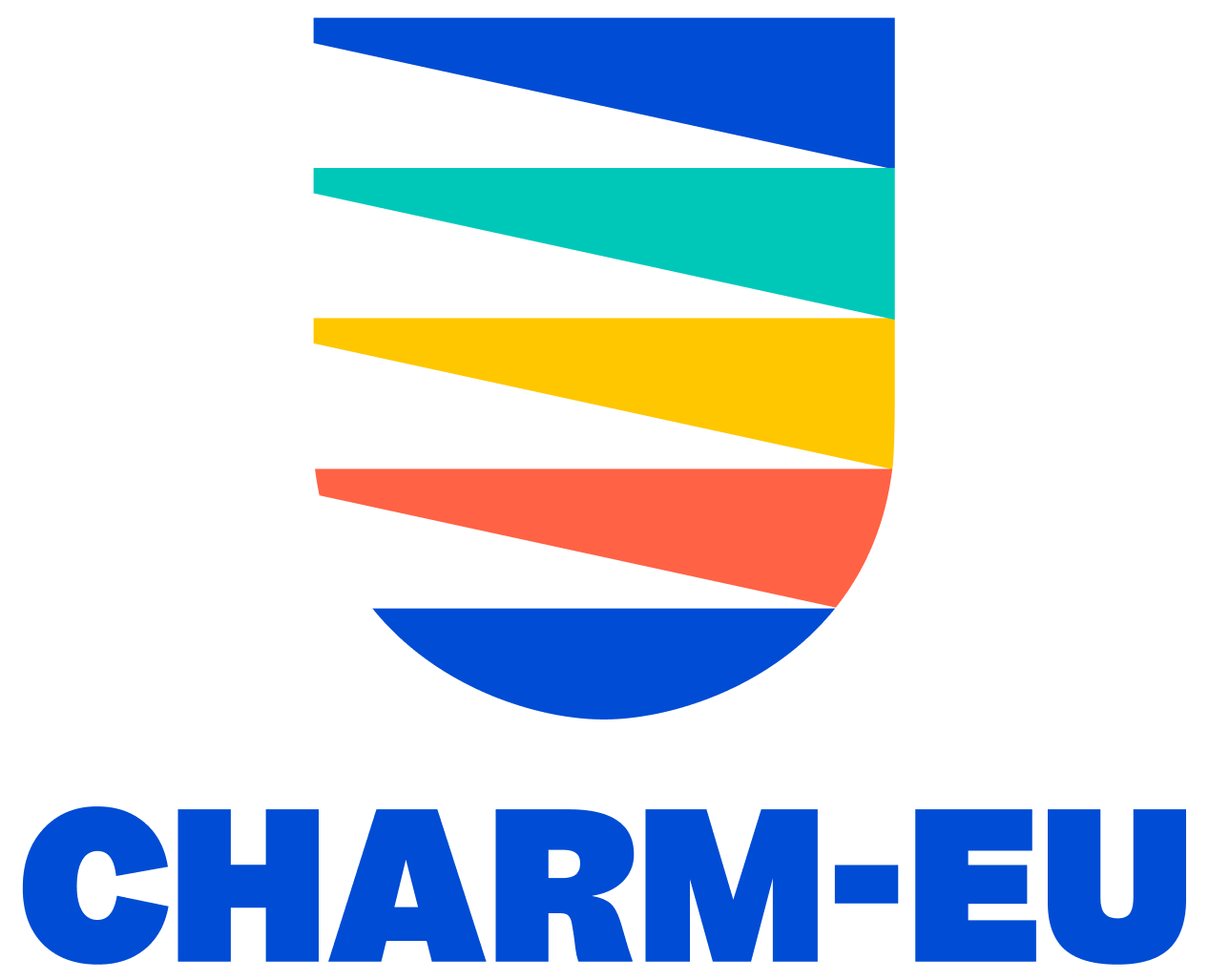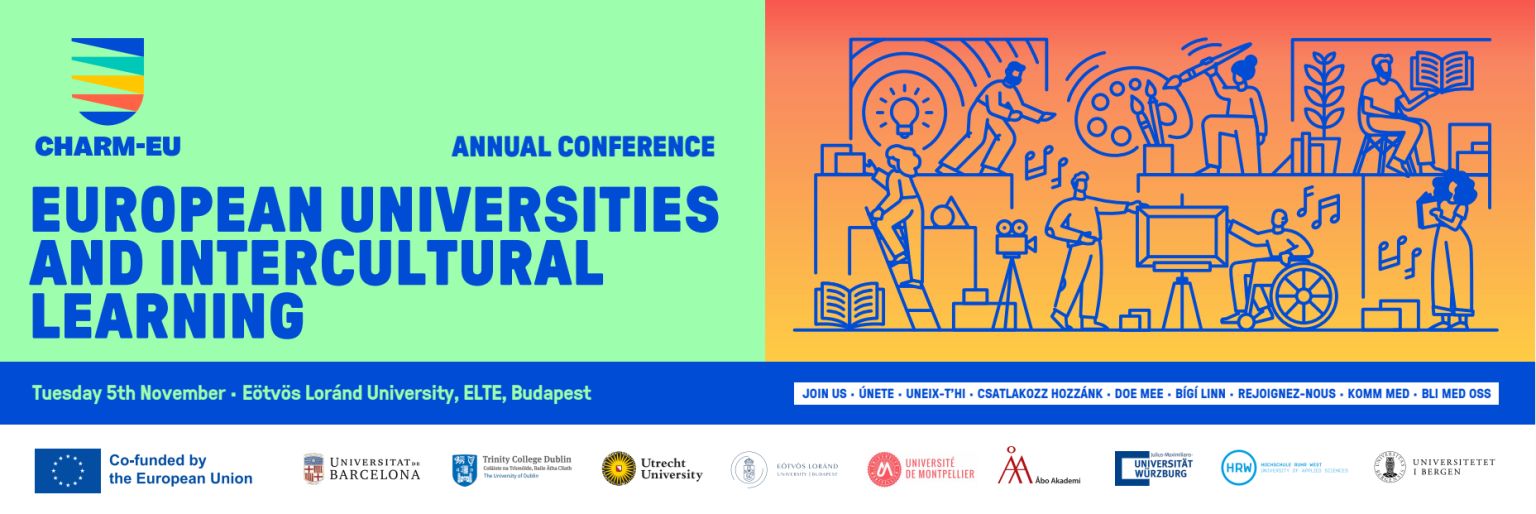How does culture shape our identities, influence our perspectives, and inform our interactions within an increasingly interconnected world? The 2024 CHARM-EU Annual Conference will examine the overarching issue of culture with its interpretations and role in deepening transnational and inter-institutional collaboration within and beyond Alliances.
Through a series of keynote speeches, panel discussions and workshops, the conference will focus on the professional aspects of languages, cultures as well as intercultural learning, uncovering opportunities and challenges for European University Alliances. The event will bring together students, staff members, representatives from fellow alliances, policymakers and external stakeholders.
Sessions will cover topics such as:
- Fostering intercultural awareness
- Facilitating transnational and intercultural learning
- Strengthening cultural bonds and cooperation between partners
- Emphasizing how interculturality shapes the strategy of partner universities and how alliances approach their processes based on intercultural collaboration
- Building inter-university campuses with students and academics across countries and disciplines working together
programme
Main venue: Eötvös Loránd University (ELTE), H-1053 Budapest, Egyetem tér 1-3, Aula Magna (Some of the afternoon workshops and the evening session will be organised at a different venue in the vicinity.)
How to arrive: https://maps.app.goo.gl/ArmsBK1UNUL1prU99
Format: On-site with hybrid sessions. The plenary sessions will be live streamed on the CHARM-EU YouTube Channel. On-site with plenary sessions live streamed on the CHARM-EU YouTube Channel. The workshops and evening sessions are designed as presential sessions.
Speech-to-Text Reporters provide real-time captioning. Their expertise is essential to the Conference to cater to the greatest level of attendees’ access and participation needs. Inclusion by design means designing the environment from the beginning to the greatest extent of users (preventive) rather than a retrospective approach (fixing the environment afterwards). The hybrid feature is in line with the core values of CHARM-EU. The Speech-to-Text can be followed here.
Hosts of the CHARM-EU Annual Conference 2024:
- Ferenc Takó, CHARM-EU Director at Eötvös Loránd University (ELTE)
- Szilvia Szöllöski, Head of University Strategy Office at Eötvös Loránd University (ELTE)
MORNING SESSIONS
08:30—09:00 | Registration
09:00—09:30 | Opening ceremony – Streamed on CHARM-EU YouTube channel
- László Borhy, Rector of ELTE
- Tine Delva, Deputy Head of Unit of the European Commission’s Directorate-General for Education, Youth, Sport and Culture speech
- Rectors and Vice-rectors of CHARM-EU partner universities
- Jan Butí, President of the CHARM-EU Student Council
09:30—10:00 | Keynote speech – Streamed on CHARM-EU YouTube channel
- Prof. Lan Anh Nguyen Luu, Director, Institute of Intercultural Psychology and Education, ELTE Faculty of Education and Psychology
10:15—11:30 | Intercultural awareness in European Universities alliances – Streamed on CHARM-EU YouTube channel
This panel session focuses on the intrinsic nature of interculturality within European University Alliances. Taking the CHARM-EU initiative as a prime example, the session will explore how alliances are equipping students with the tools to thrive in an international environment. The CHARM-EU intercultural awareness course provides comprehensive intercultural training for students participating in mobility programs across all CHARM-EU universities and study levels. The course aims to equip students with the necessary skills for navigating intercultural interactions, fostering intercultural learning, reflection, and competencies. The discussion will be a platform to share and explore the diverse strategies employed by European Universities Alliances to raise awareness on interculturality and empower students to navigate a globalized academic landscape.
- Chair: Rena Zendedel (Utrecht University)
- Panelists: Christelle Tallon (EU-CONEXUS), Zuhal Okan (EUPeace), Benedikt Franke (Julius-Maximilians-Universität of Würzburg), Priscila Alvarez-Cueva (UB)
- Rapporteur: Kristin Torp Skogedal (University of Bergen)
11:30—13:00 | Group Photo and Lunch Break
AFTERNOON SESSIONS
13:00—13:30 | Opening of the first CHARM-EU Cultural Festival – Streamed on CHARM-EU YouTube channel
- Oroslya Réthelyi (Eötvös Loránd University) speech
- Meritxell Chaves, CHARM-EU Secretary General speech
- Eötvös Loránd University Choir
- CHARM-EU Student Council
13:30—14:45 | Global South Perspectives in European Higher Education – Streamed on CHARM-EU YouTube channel
This panel session will explore ways to bring Global South perspectives and foster collaboration in the European Higher Education Area. The speakers will offer insights on diverse educational approaches such as long-term partnerships, course co-design, and other collaborative mechanisms. Through dialogue, the session will centre on increasing equality through co-design, rather than relying on European-led initiatives, while also addressing the associated challenges.
- Chair: Mònica Rius Piniès (University of Barcelona)
- Panelists: Lara Cortes (University of Bergen), Marjanneke Vijge (Utrecht University) and Umesh Bawa (University of the Western Cape)
- Rapporteur: Camilla Borrevik (University of Bergen)
14:45—15:15 | Coffee and short walk to workshop sessions
15:15—16:45 | Workshop sessions
Some of the workshops will take place in another venue within walking distance. Please check the section “Practical information” – “Event information and venues”.
Venue: ELTE Faculty of Humanities, Building F, Room 25 (Venue B)
Developing an intercultural positionality resource for Challenge Based Learning
In this session, participants will co-create an intercultural positionality resource for CHARM-EU challenge-based learning activities. Positionality is a reflection and recording of the researchers’ position upon the research being conducted, and what impact it may have on the research. Within challenge-based learning activities, students and staff are often engaged with stakeholders from different cultures and backgrounds to develop solutions to challenges. A key part of this process is for students to acknowledge their positionality and consider how their biases and backgrounds may influence the research design, methodology, and interpretation of their results. This session invites students, researchers, teaching staff and stakeholders to share experiences and collaborate to produce a positionality resource for challenge-based learning.
- Facilitator: Silvia Gallagher (Trinity College Dublin)
- Rapporteur: Jenny Kirkwood (Trinity College Dublin)
Venue: Faculty Meeting Room (groundfloor), main building (Venue A)
Exchange students and interculturality
Come and meet students from your universities! Almost all CHARM EU HEIs have sent exchange students to ELTE during the autumn term. They had different expectations, doubts, practical issues to solve, etc. before their exchange period. They have now been studying abroad for a while and faced many interesting experiences. How is it to study abroad in comparison to how it is at the home university? What are the intercultural experiences? What were the expectations? What are the challenges? What has been more difficult or easier than expected? Are there any surprises? What do they foresee to take away? In other words – has the dream been fulfilled so far?
- Facilitator: Luca Alexa Erdei, PhD (Eötvös Loránd University)
- Rapporteur: Harriet Klåvus (Åbo Akademi University)
Venue: ELTE Faculty of Humanities, Building F, Room 101 (Venue B)
Culture(s) and Story Circles
Through the adaptation of two activities by famous interculturalists Kate Berardo and Darla Deardorff, participants will be invited to reflect upon the notion of culture(s) what is required to build intercultural competence. (Developing Intercultural Competencies Through Story Circles – Adapted from Darla Deardorff https://unesdoc.unesco.org/ark:/48223/pf0000370336)
- Facilitator: Céline Fabre (Université of Montpellier)
Venue: Aula Magna Ceremonial Hall, main building (Venue A)
AI era challenges of multilingualism in Europe (interactive discussion)
Having 24 official languages, the European Union promotes linguistic diversity and multilingualism and encourages citizens to communicate in two other languages than their mother tongue. However, protecting linguistic diversity and promoting multilingual learning can be challenging without appropriate support and resources. This workshop will focus on the multilingual aspect of Europe, discovering the roles European Universities can have in supporting language learning and multilingualism through reflecting on several issues: What exactly do we meany by multilingualism in the European context? How can European Universities leverage technological innovation and AI for supporting language learning and multilingualism? What is the role of ‘translation’ in the everyday life of European citizens in the 21st century and how can universities and European University Alliances position themselves in this regard? How can European Universities support learners in practicing their language skills and learning new languages? How can we promote/incorporate interculturality and multilingualism in the classroom? How can we use English as a facilitator for further language learning and intercultural understanding without threatening linguistic diversity?
- Moderator: Orsolya Réthelyi (Eötvös Loránd University)
- Speakers: Prof. dr. Gábor Prószéky, Director of HUN-REN Hungarian Research Centre for Linguistics (also representing the country in ALT-EDIC) and Prof. dr. Jan ten Thije, professor emeritus for Intercultural Communication, Department of Languages, Literature and Communication (Utrecht University)
Venue: ELTE University Library and Archives (Venue C)
Cross-institutional and intercultural collaboration: A look into the European University Alliances’ joint virtual offices and interconnected support structures
An interactive workshop devised to prompt an exchange of good practices, challenges and experiences on diverse models of joint virtual structures emerging from inter–institutional and intercultural collaboration. This could be Alliances’ offices or networks of university units supporting administration, academic programmes, IT services, research, innovation, etc. The workshop brings together representatives from different Alliances and aims to facilitate a mutual learning exercise among them.
- Facilitator: Janina van Hees (Utrecht University), Femke ten Bloemendal (Utrecht University) and Shawn Turpijn (Utrecht Unviersity)
- Rapporteurs: Anikó Gál Bélteki (Eötvös Loránd University) and Jaime Llorca (University of Barcelona)
16:45—18:00 | Break
EVENING SESSIONS
Venue: Eötvös Loránd University (ELTE), Faculty of Humanities (H-1088 Budapest, Múzeum krt. 4. Gólyavár, Mária Terézia Room)
How to arrive: https://maps.app.goo.gl/QW9cUwvFBCWtDcsB6
18:00—19:00 | Poster session
Poster session on intercultural best practices.
19:15—20:30 | Evening programme
- Introduction by hosts Ferenc Takó and Szilvia Szöllösi
- Greetings from the Dean of the Faculty of Humanities, Dávid Bartus
- Closing Speech by Jan Haarhuis, CHARM-EU Director in Utrecht University
- Cultural Programme
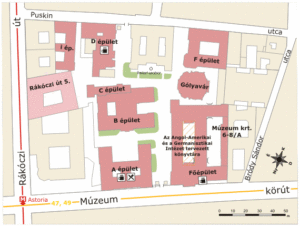
Speakers & Contributors
We are delighted to announce speakers and contributors who have accepted our invitation to attend and contribute to the CHARM-EU Annual Conference 2024.
Anikó Gál Bélteki
CHARM-EU Manager at ELTE
Anikó Gál Bélteki is acting as CHARM-EU project manager at the Eötvös Loránd University, Budapest. She has already been involved in the alliance’s R&I dimension project TORCH and now focuses her efforts on the smooth running of the CHARM-EIGHT project. Holding a degree in agricultural and environmental sciences and being a qualified translator, she has gained work experience in an international environment from multinational companies through projects of universities and conservational NGOs affiliated to global networks. Due to her diverse administrative and coordinator roles she regularly participates in the meetings of various governing boards and offices of CHARM European University and provides assistance for some work packages which means being in daily work contact with the representatives of partner institutions.
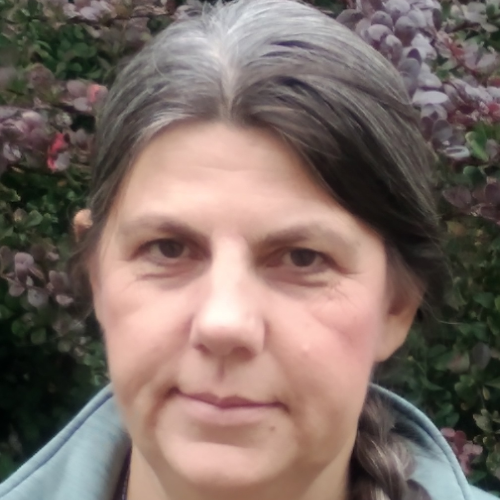
Benedikt Franke
Chair of Financial Accounting at the Julius Maximilian University of Würzburg
Benedikt Franke holds the Chair of Financial Accounting at the Julius Maximilian University of Würzburg. His main research area is on corporate transparency and capital markets. He received his doctorate at the Graduate School of Economics and Social Sciences at the University of Mannheim. During his time as a research assistant and postdoc in Mannheim, he was a visiting researcher at Simon Fraser University (Canada) and the University of Graz (Austria). Before joining the University of Würzburg, he was an assistant professor at SKEMA Business School in Paris (France), teaching in the school’s multi-campus program. Within the faculty of business management and economics, Benedikt Franke currently heads the international master’s program.
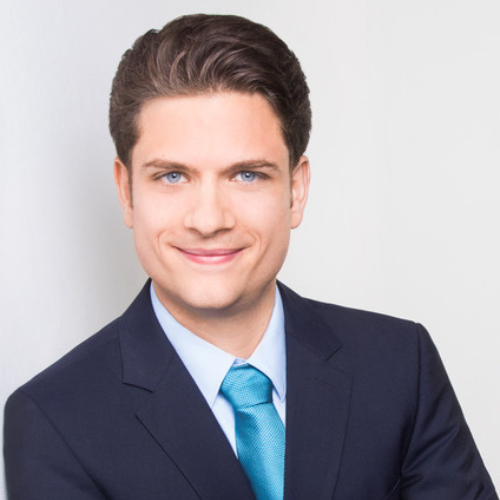
Camilla Borrevik
Senior Advisor for International Collaboration at the Research and Innovation Department, University of Bergen
Camilla Borrevik is a Senior Advisor for International Collaboration at the Research and Innovation Department, University of Bergen. She is also a CHARM-EU Manager for the University of Bergen. In her role as Senior Advisor she provides strategic advice and support on issues relating to the Sustainable Development Goals, ocean initiatives, partnerships and science-policy activities. Camilla is also the Head of the Secretariat for the annual SDG Conference in Bergen and the Programme Editor for the annual high level event One Ocean Summit in Norway. She holds a PhD in Social Anthropology focused on climate change, diplomacy, UN climate negotiations, and Pacific island states.
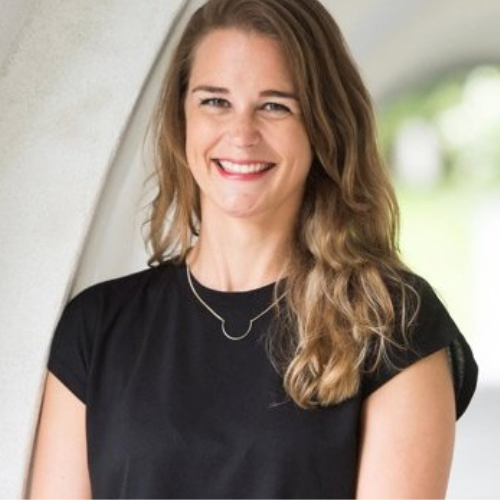
Céline Fabre
Head of Languages & Cultures at L’Institut Agro Montpellier
Céline Fabre works as Head of Languages & Cultures at L’Institut Agro Montpellier (the French National Institute of Further Education in Agricultural Sciences). She has a solid experience as a teacher of English for Specific Purposes and is a SIETAR-certified* intercultural trainer.
She has been involved in International Relations for the past ten years over various projects, from the development of academic partnerships and student mobility, Erasmus+ projects with the Philippines and as a University of Montpellier Work Package Coordinator for European Alliance CHARM-EU.
Her current focus lies on preparing students and staff for international cooperations: intercultural competence development, EMI –English as a Medium of Instructions – courses and innovative pedagogy.
*SIETAR = Society for Intercultural Training and Research
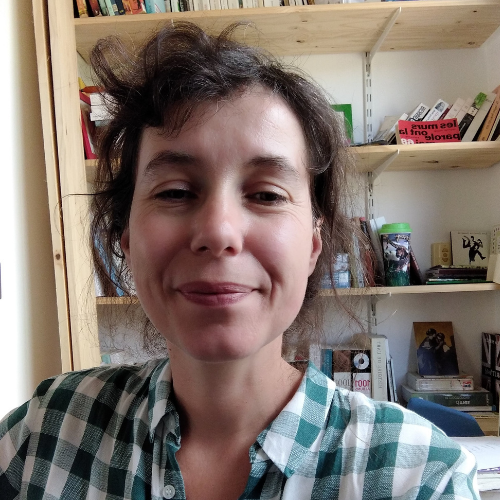
Christelle Tallon
Coordinator of the WP « Community engagement through arts and culture » led by La Rochelle Université
Christelle Tallon joined EU-CONEXUS, the European University for Smart Urban Coastal Sustainability in 2020. After a couple of years as project manager at the Alliance Global Coordination team based at La Rochelle Université (France), she is now coordinating the WP « Community engagement through arts and culture » also led by La Rochelle Université. The objectives of this WP are to reinforce the sense of belonging to EU-CONEXUS through arts and culture, support students initiatives, promote the diversity of intercultural artistic expressions and facilitate the co-production of collective artistic and cultural projects.
Christelle also contributes to the « EU-CONEXUS University to school programme » with activities promoting Smart Urban Coastal Sustainability topics and careers and to the development of an EU-CONEXUS Career Center to enhance the employability of EU-CONEXUS students.
Before joining EU-CONEXUS, Christelle worked for the Institute of Higher Studies for Science and Technology as development manager and before for the International Law firm Simmons & Simmons as HR Officer.
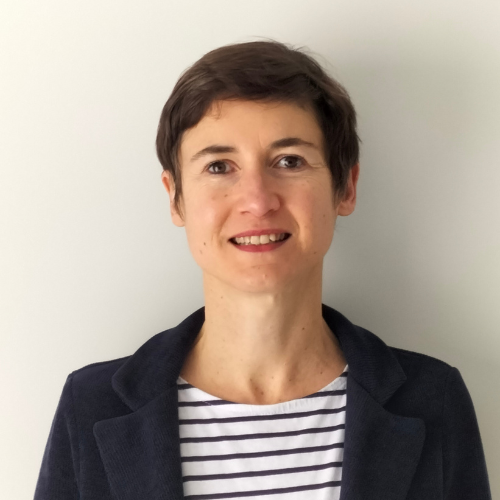
Clara Betsch
Studying Political and Social Studies at the University of Würzburg
Clara Betsch is currently pursuing a degree in Political and Social Studies at the University of Würzburg, specializing in sociology. She has been actively involved in the local student council for the past three years, contributing to key initiatives that benefit her academic community. Clara served as the speaker for foreign policies and exchange within the student representation for one year, where she helped foster interuniversity collaboration in regards of the different student representations. Following that role, she led the student council as its head for another year, overseeing various student-related matters and initiatives.
Coming from a mixed linguistic and cultural background, Clara has a deep personal understanding of the challenges and importance of multilingualism, which has shaped her perspective on social and political issues. She is passionate about contributing to inclusive and diverse academic environments.

Ellica Mildh
Student at Åbo Akademi University
Ellica Mildh is a second-year Master’s student at Åbo Akademi University in Finland, pursuing a degree in International Law and Human Rights. My academic focus is on EU law and the European integration project, driven by my interest for understanding the complexities of European governance. Taking the opportunity to go on an exchange period felt like a natural choice for me, since it offers the chance to explore courses unavailable at my home university while fostering connections with people from different cultural backgrounds.
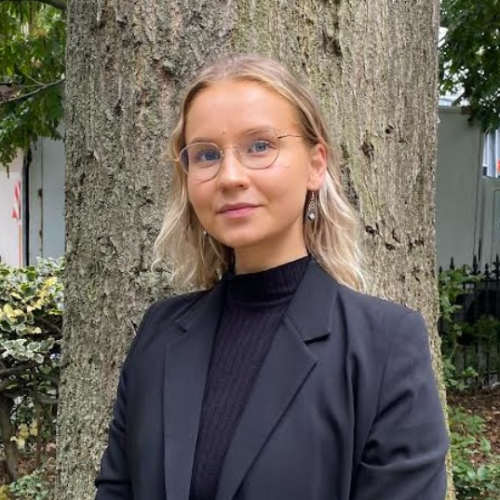
Femke ten Bloemendal
Senior Joint Virtual Administrative Officer
Femke ten Bloemendal has been the senior JVAO (Joint Virtual Administrative Officer) Utrecht University for the past two years. She has worked in the higher education sector for 20 years, mostly in the field of international exchange, admissions, study support and services for (international) students.
Her main tasks within the JVAO include Assessment/education, administrative procedures and policies.
She has a BA and a MA in Social sciences with a focus on youth, law and inclusivity.
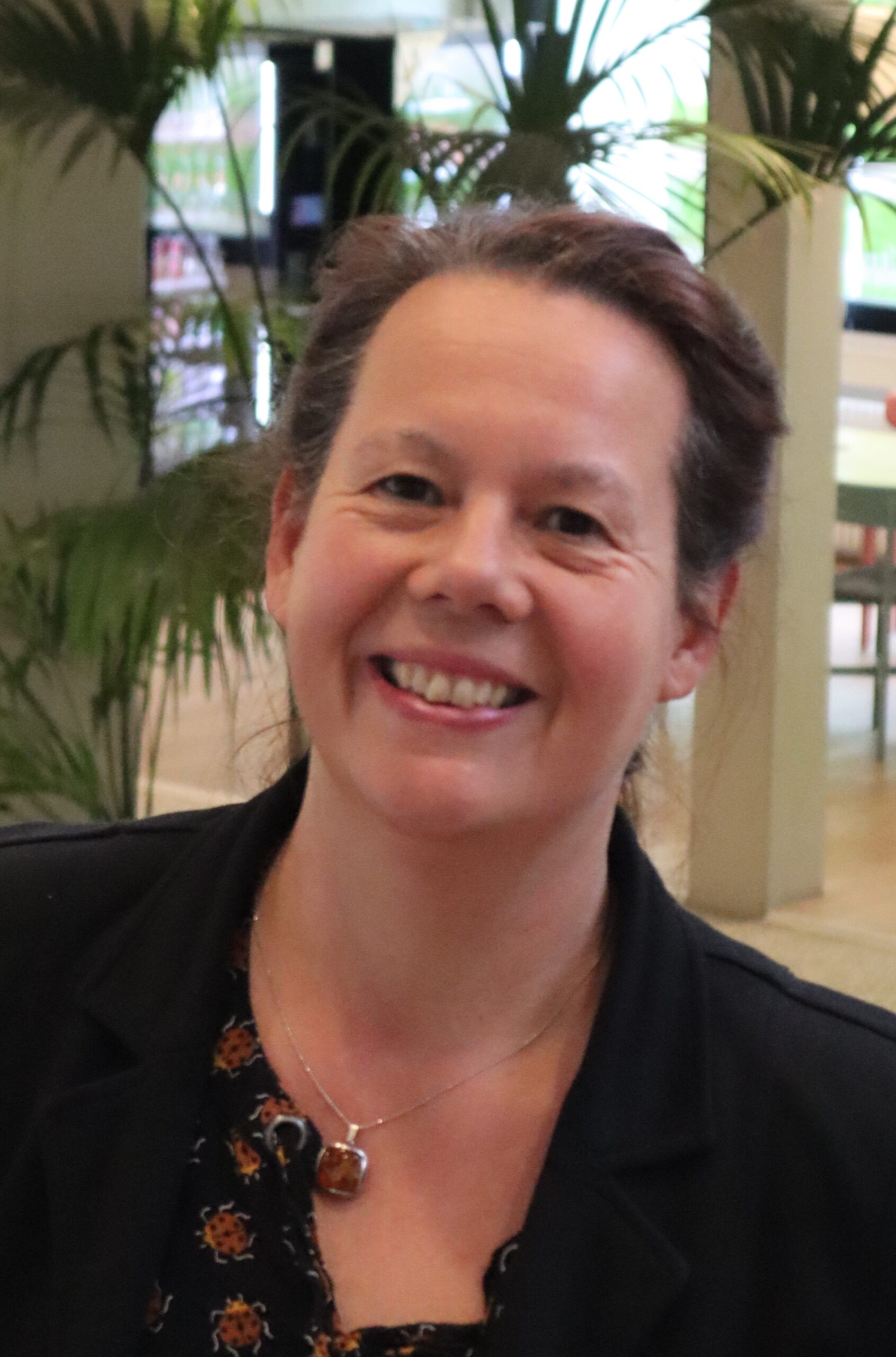
Ferenc Takó
Member of the CHARM-EU Executive Board, CHARM-EU Director and Head of the Rector's Cabinet CHARM-EU Office, Eötvös Loránd University (ELTE)
Ferenc Takó studied Philosophy and Japanese Studies at Eötvös Loránd University (ELTE), Budapest, Hungary, where he currently lectures at the Department of Japanese Studies. He used to be head of the Rector’s Cabinet International Strategy Office at ELTE between 2018 and 2021. Since 2021, he is head of the Rector’s Cabinet CHARM-EU Office and ELTE Executive Director of CHARM-EU.
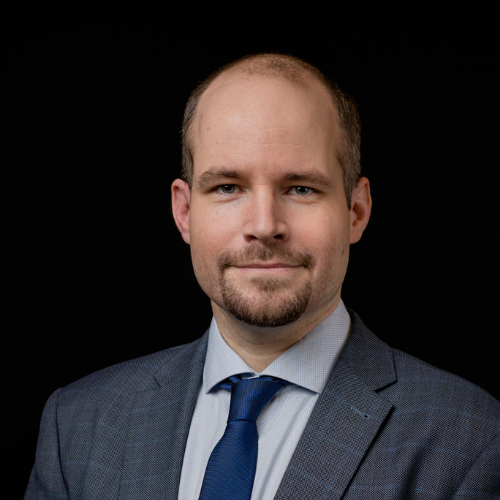
Gábor Prószéky
Director general of the HUN-REN Hungarian Research Centre for Linguistics and professor emeritus of the Faculty of Information Technology and Bionics at the Pázmány Péter Catholic University (Budapest).
Gábor Prószéky is the director general of the HUN-REN Hungarian Research Centre for Linguistics and professor emeritus of the Faculty of Information Technology and Bionics at the Pázmány Péter Catholic University (Budapest). He holds a PhD (1994) in computational linguistics. In 2005 he received the title of Doctor of the Hungarian Academy of Sciences. In 2024 he became a member of Academia Europaea.
In 1991, he co-founded MorphoLogic, the first language industry company in Hungary. Since then, MorphoLogic’s various applications have been licensed by Microsoft, IBM, Xerox, among others. In 1999, MorphoLogic won the IST Prize of the European Commission.
Since his university years, he has been involved in more than thirty R&D projects in language technologies, and computational and theoretical aspects of humanities. His research interest covers various aspects of computational analysis of highly inflectional languages, intelligent dictionaries, machine translation, large langauge models. He is the author of more than 200 scientific papers and three books on human language technologies. He has been a lecturer at various universities, dealing mostly with application of computers in humanities.
In 2000, Gábor Prószéky received Hungary’s highest award, the Széchenyi Prize, for his scientific activities. Among others, he also received the Kalmár Award (1995), IT Manager of the Year (2002), Award for the Hungarian IT (2005), Special Prize to the IT Lecturer of the Year (2009) and Dennis Gabor Award (2010), Pázmány Plaquet (2013), Prima Award (2023).
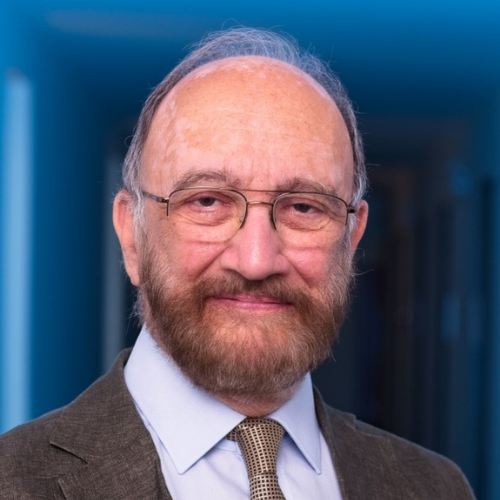
Harriet Klåvus
Head of International Cooperation and CHARM-EU manager at Åbo Akademi University, Finland
Harriet Klåvus, Head of International Cooperation and CHARM-EU manager at Åbo Akademi University, Finland. Furthermore, she is the Institutional Erasmus Coordinator as well as the Coimbra Group representative at Åbo Akademi University. She has been working at the International Affairs since 1995. She is also a representative in both national and regional committees and has been the founding member of both the Nordlys Student Exchange Network and the Coimbra Group Student Exchange Network. Both of them are multidisciplinary student exchange networks, today functioning under the Erasmus programme. She has been participating in several Erasmus and Tempus projects and has acted as a consultant on student exchange for both the Finnish National Agency and the Nordic Council of Ministers. She has also been the Secretary General for the Nordic Association of University Administrators (NUAS).
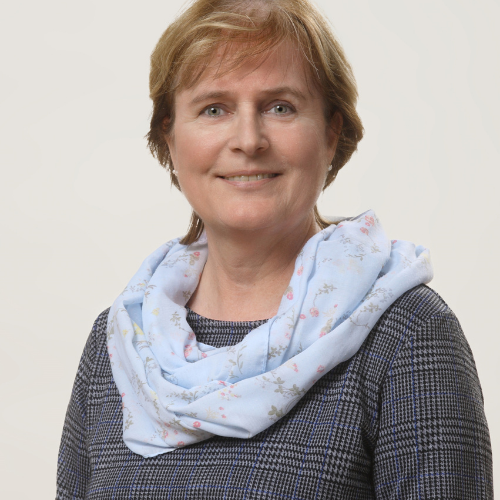
Jaime Llorca
CHARM-EU Manager at the University of Barcelona
Jaime Llorca is currently the CHARM-EU Manager at the University of Barcelona. He holds a PhD in Physical Geography, and worked for a few years as a Managing Editor of open access scientific journals, mostly focused on Earth Sciences and Social Sciences. He also acted as Knowledge Management Specialist at IDIBELL, dealing with the analysis of the institution’s scientific performance and researchers evaluation, as well as with the design and implementation of practices linked to Open Science and Responsible Research and Innovation. Lately, he was the Project manger for TORCH, the project developing CHARM-EU’s R&I dimension.

Jan Haarhuis
Educationalist and teacher in mathematics and physics at Utrecht University
Jan Haarhuis is an educationalist and teacher in mathematics and physics. During his career at Utrecht University, he held various positions with a focus on educational innovation and change. Since 2019, he has been involved in the development of CHARM-EU, a new European university, and has joined the academic board of the first European Joint Degree master “Global Challenges for Sustainability”, which started in September 2021. As of January 2023, he is co-director of Utrecht University at the Executive Board of the CHARM-EU alliance. From 2019 to 2023, he has been a member of the Education Steering Group of the strategic alliance TUe, WUR, Utrecht University and UMCU (EWUU). From 2021 to February 2024, Jan initiated and led U-Collaborate in Education for Utrecht University as part-time program manager.
From 2014 to 2020, he initiated and led the university-wide program “Educate-innovation and technology” (Educate-it) that supports lecturers in future-proofing and improving their teaching practice. This includes ‘Faculty Development’, ‘Quality Assurance and Research’ and ‘Culture and Organizational Change’.
In 2016, Jan received the ‘change maker’ award in the category ICT and Education Professionals at the Dutch SURF education awards.
From 2016 to July 2024, he has been chair of the Digital Education policy group of the League of European Research Universities LERU. The group organized the first blended conference ‘Digital Higher Education Summit’ in November 2018.
In 2005 he became head of the Department of Education and Student Affairs and head of Educational Policy of the Faculty of Veterinary Medicine. From 2009 to 2013 Jan was responsible for the implementation of a new three-year Master’s program in Veterinary Medicine, which included the implementation of a programmatic/longitudinal assessment system.

Jan ten Thije
Professor Emeritus Intercultural Communication at the Department of Languages, Literature and Communication
Jan D. ten Thije is Professor Emeritus Intercultural Communication at the Department of Languages, Literature and Communication. Previously, he was an associated professor (‘Hochschuldozent’) at the Department of Intercultural Communication of the Chemnitz University of Technology and visiting professor at the Department for Applied Linguistics of the University of Vienna. He studied General Linguistics and Dutch Language and Culture at the University of Amsterdam and received his PhD from Utrecht University. His main research area are institutional discourse in multicultural and international settings, receptive multilingualism, intercultural training, language education and functional pragmatics. Between 2002 and 2019, he coordinated the Master’s program in Intercultural Communication. He is editor of the European Journal for Applied Linguistics (EuJAL) published by Mouton de Gruyter and series editor of the Utrecht Series in Language and Communication (USLC), Mouton de Gruyter / Brill Publications.
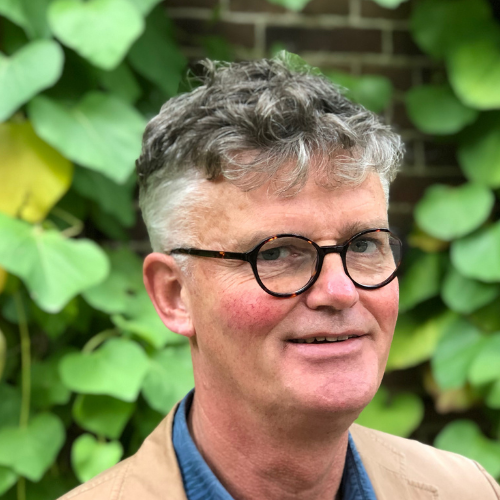
Janina van Hees
Lead in CHARM-EIGHT’s Work Package on the topic of IT Strategy
Janina van Hees is leading CHARM-EIGHT’s Work Package on the topic of IT Strategy. She recently coordinated the establishment of CHARM’s Joint Virtual IT Office. In this office, the CHARM partners all contribute staff with a certain specific expertise to support the IT-needs of CHARM. In 12 different topic-related groups, small international teams exchange expertise and jointly develop services for CHARM. Besides the JVITO, Janina also works on topics such as the hybrid classroom, the IT Architecture for CHARM and Transnational Online Learning. She is also a member of the European Digital Education Hub’s working group on interoperability in higher education. Her previous experiences include working for EuroTeQ European University Alliance and working for SURF, the Dutch organization for IT in higher education.
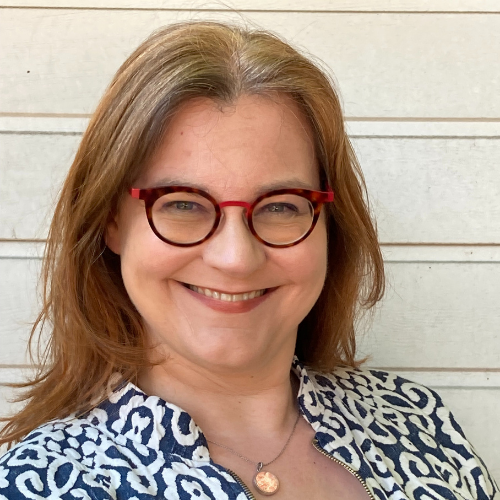
Jenny Kirkwood
Joint Virtual Administrative Officer for CHARM in Trinity College Dublin (TCD).
Jenny has worked with the Schools of Engineering & Music as administrative co-ordinator on a joint master’s programme in Music & Media Technologies.
She also worked in the School of Physics in TCD as the administrator on the master’s in Energy Science.
Jenny has a degree in European Studies from TCD where she majored in German.
She has a keen interest in arts, history, languages, and culture.
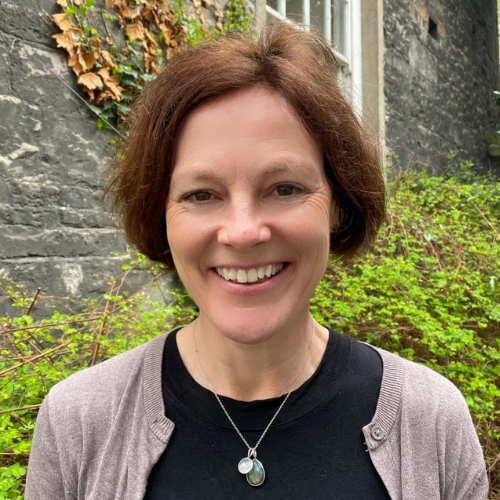
Kristin Torp Skogedal
Erasmus Institutional Coordinator at the University of Bergen
Kristin Torp Skogedal is Erasmus Institutional Coordinator at the University of Bergen. She has worked in the higher education sector for 20 years, whereas the last ten years with the Erasmus program.
Her main tasks include European partnership agreements, student and staff mobilities, information and advisory services, as well as participation in international projects and networks.
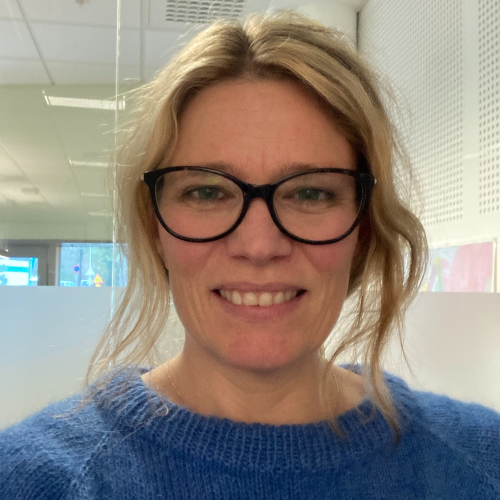
Lan Anh Nguyen-Luu
Director of the Institute of Intercultural Psychology and Education at the Faculty of Education and Psychology, Eötvös Loránd University
Dr. Lan Anh Nguyen-Luu is a Vietnamese-born, Budapest-based intercultural and social psychologist. She is a professor of psychology and the Director of the Institute of Intercultural Psychology and Education at the Faculty of Education and Psychology, Eötvös Loránd University in Budapest, Hungary. Her primary research interests include acculturation and adaptation, particularly among international students and migrants, as well as intercultural relations, cultural and ethnic identity, gender beliefs, and teachers’ attitudes toward diversity. In addition to her academic role, Dr. Nguyen-Luu is an experienced intercultural trainer, specializing in training international mobility students and higher education staff members who work with them.
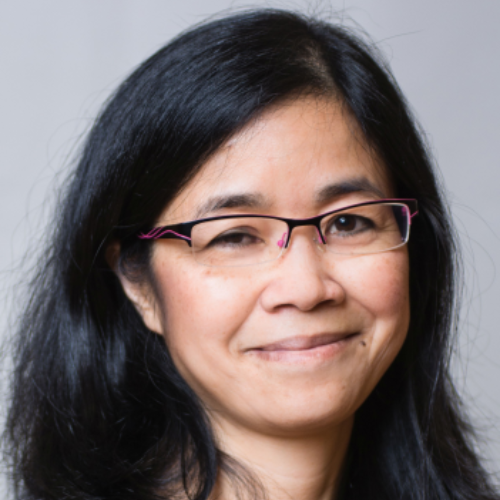
Lara Côrtes
Coordinator at LawTransform (CMI-UiB Centre on Law & Social Transformation)
Lara has a PhD in Law from the University of Sao Paulo in Brazil. Particularly relevant for this panel is her experience as coordinator for two projects at the University of Bergen focusing on research-based education with partners in Brazil, India and South Africa and her experience with LawTransform’s network in the Global South more broadly.
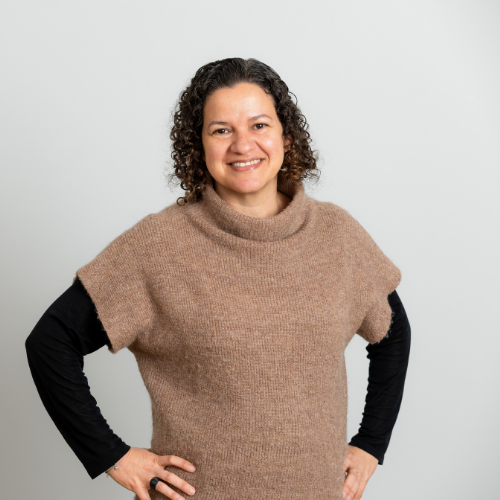
Luca Alexa Erdei
Assistant professor at the Institute of Research on Adult Education and Knowledge Management, Faculty of Education and Psychology, Eötvös Loránd University, Hungary
Luca Alexa Erdei, PhD is an assistant professor at the Institute of Research on Adult Education and Knowledge Management, Faculty of Education and Psychology, Eötvös Loránd University, Hungary. She also serves as a mobility expert and work package co-lead within the CHARM European University Alliance. Her primary research area focuses on internationalization in higher education, including topics such as internationalization at home and organizational learning through joint degree programs. Taking on both professional and academic roles, Luca is actively engaged in connecting theory and practice by applying the latest research findings in her development work at CHARM-EU or in other R&D projects.
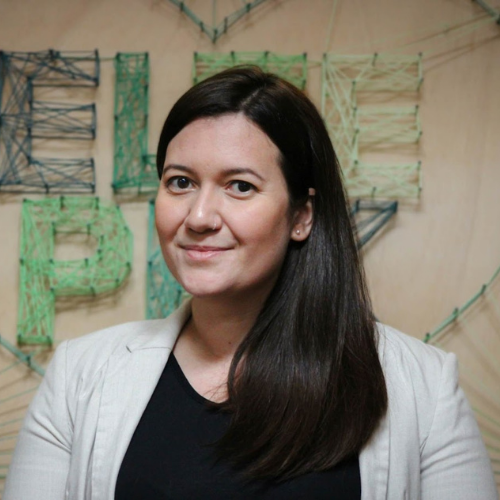
Luca Straßburger
Student at Hochschule Ruhr West
Luca Straßburger, 22, is a student at Hochschule Ruhr West, originally from Düsseldorf. Currently pursuing a degree in Business with a focus on International Trade and Logistics, Luca has a passion for exploring the world of commerce and transportation. Outside of studies, Luca is on a personal mission to discover the best food spots in town, always open to recommendations. A fun fact? Luca once went bald due to a miscommunication with a barber—needless to say, the search for a new barber soon followed!
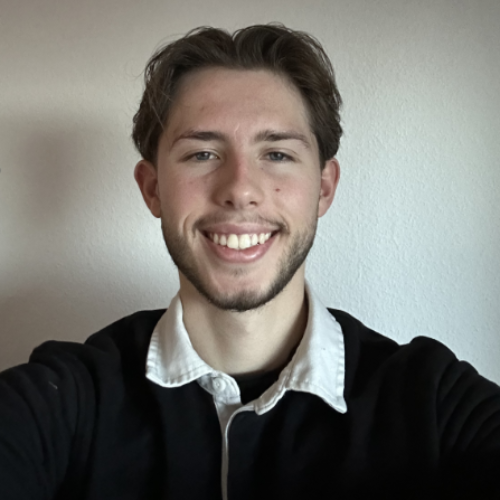
Marjanneke Vijge
Associate Professor at the Copernicus Institute of Sustainable Development, Utrecht University, the Netherlands
Marjanneke Vijge is Associate Professor at the Copernicus Institute of Sustainable Development, Utrecht University, the Netherlands. Her current research focuses on policy coherence around the Sustainable Development Goals and the implications for social inequality in Africa and Asia. Marjanneke is involved in four international research projects on this topic, including a research project that she leads on the water-energy-food nexus in South Africa. Marjanneke is also Academic Director of CHARM-EU and Programme Leader of the joint European Master’s programme ‘Global Challenges for Sustainability’ that she helped to develop. Marjanneke is lead developer of the Capstone, the final 6 months of the Master’s in which student teams work together with societal actors to address sustainability challenges in Europe and beyond.

Meritxell Chaves
Secretary General of European University of CHARM-EU
Meritxell Chaves has more than thirty years of experience in the higher education sector, in four universities of the Catalan university system, in different functional areas of the University such as academic management, strategic planning, quality and accreditation, and international relations in different organisational cultures. As Secretary General of European University of CHARM-EU since the start of the initiative in 2019 she has been leading CHARM-EU team.

Mireia Reus
CHARM-EU Officer at the University of Barcelona
Mireia Reus is currently balancing her role as a CHARM-EU Officer at the University of Barcelona with her studies in Social and Cultural Anthropology at the same university. She holds a degree in Translation and Interpreting from Pompeu Fabra University and a master’s programme in international relations and advanced European studies from Centre International de Formation Européenne. Before CHARM-EU, she has worked in several international projects in non-governmental organisations.
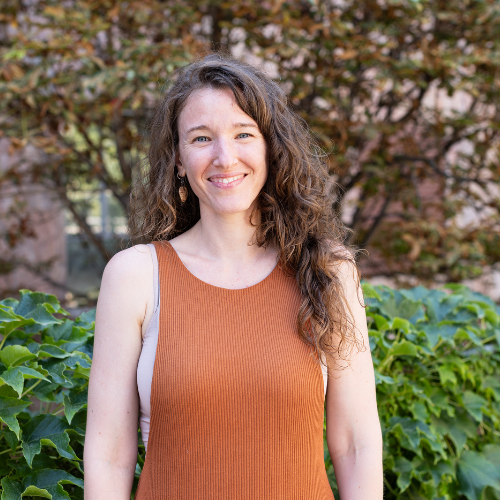
Mònica Rius Pinies
Director of the research centre ADHUC-Theory, Gender, Sexuality and the UNESCO Chair "Women, Development and Cultures" at the Universitat de Barcelona
Mònica Rius Pinies is the director of the research centre ADHUC-Theory, Gender, Sexuality and the UNESCO Chair “Women, Development and Cultures” at the Universitat de Barcelona, where she holds the position Serra Húnter associate professor within the Section of Arab and Islamic Studies. She coordinates the consolidated research group “Women’s Creation and Thought” (2021 SGR 01097) and is a member of the International Research Network World Gender. She has been the president of the Societat Catalana d’Història de la Ciència (SCHCT-IEC), secretary of the Sociedad Española de Estudios Árabes (SEEA), coordinator of the master’s degree Construction and Representation of Cultural Identities and director of the master’s degree Arab and Islamic World.
Her multidisciplinary research focuses on gender and cultural studies and their intersection with the social history of science and medicine. She currently analyses the relationship between science and gender in colonial and post-colonial contexts through literature, film and series.

Nóra Székely
Student at ELTE
I earned my Bachelor’s degree in Health Promotion Management in 2022
This year I’m going to complete my Master’s studies in Human Resource Counselling at ELTE. As part of the Charm EU program, I had the opportunity to study abroad last year. My choice of Finland was influenced by my interest in its culture and the Finnish way of life and thinking, which are quite different from the Hungarian. Besides, I wanted to gain insights into their educational system. As an academic reason behind my choice I would highlight my motivation to complement my studies with knowledge in economics.
During my mobility, I perfected my out-of-the-box thinking and the ability to recognize opportunities. I tried a wide range of sports (some of them I had never heard about), and joined a choir. My organizational skills improved, as I took on the role of travel coordinator for a group of international students. Thanks to the mobility, I also developed the ability to reorganize my daily and weekly schedules within a few minutes.
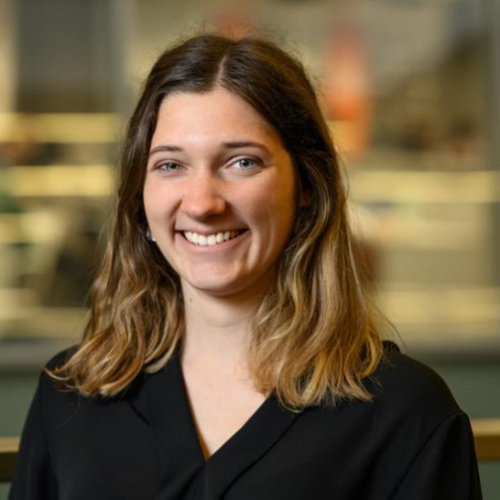
Orsolya Réthelyi
Vice-dean of International Affairs at the Faculty of Humanities, Eötvös Loránd University (ELTE)
Orsolya (Orsi) Réthelyi (1970) is associate professor, head of the Department of Dutch Studies at Eötvös Loránd University (ELTE), vice-dean of international affairs of the Faculty of Humanities ELTE and literary translator. She is a graduate of Utrecht University and Central European University (CEU). Her research interests include the history of intercultural transfer, influence, and translation between the Low Countries and Hungary, the history and dissemination of old and modern Dutch-language literature, and the literature of migration. Some recent publications she has been involved in as author and editor are: Doing Double Dutch. The International Circulation of Literature from the Low Countries (2017), De kindertreinen (2020), ‘The Transnational Trajectories of Dutch as a Minor Literature’, special issue of Dutch Crossing (2020), Destination: Hope. The International Children’s Train Action in the Interwar Period (2022), A holland nyelvű irodalom története [The history of Dutch Literature] (2022).

Priscila Alvarez-Cueva
postdoctoral fellow at the faculty of information and audiovisual media of University of Barcelonay
Priscila Alvarez-Cueva is a Juan de la Cierva postdoctoral fellow at the faculty of information and audiovisual media of University of Barcelona, and collaborates in the intercultural communication KCT. She holds a bachelors in social communication and advertising at the University of Azuay (Ecuador) and a master in international studies, media, power and difference at Pompeu Fabra University (Spain). She received her PhD from Pompeu Fabra University (Spain) with an international mention. Moreover, she is a visiting scholar in Universidade do Porto (Portugal) and KULeuven (Belgium). Her main research area combines cultural studies and communication studies from both gender and decolonial perspectives. Her teaching background relates to gender studies, journalism and communication.
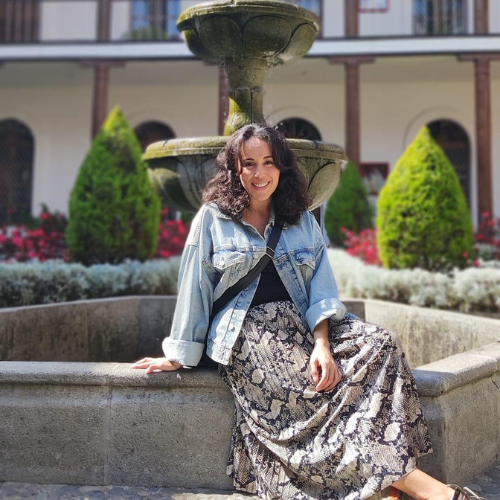
Rena Zendedel
Assistant professor at Utrecht University
Rena Zendedel is assistant professor at Utrecht University, in the Department of Languages, Literature and Communication in the section on Translation, Intercultural Communication and Education. Her research has been focused on informal interpreting in medical settings and she is currently developing her research more into the studies of intercultural competences of (exchange) students and teachers. She is also a trainer of intercultural competences in different settings and she teaches several courses in the MA program on Intercultural Communication.
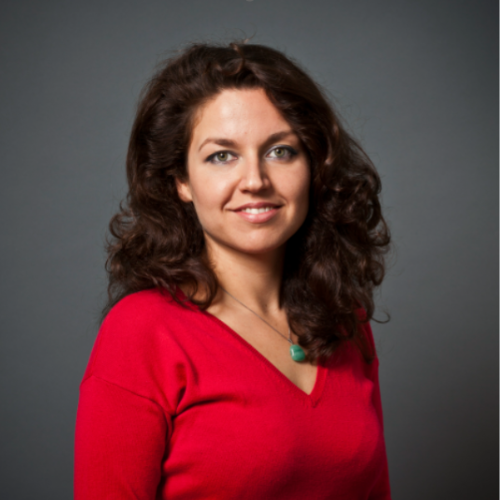
Réka Boros
Student Representative of ELTE in the CHARM-EU alliance
As a Hungarian student from the countryside, ELTE (Eötvös Loránd University) was the force that made me move to the capital city. Studying International Business Economics on the Bachelor’s level at Faculty of Economics and working for Students’ representation for more than three years now.
Currently working for the Students’ Union on University level as the Vice-president for Foreign Affairs, thus working as the student representative of ELTE in the CHARM-EU alliance as well.
With all this aiming to contribute equal chances and standards for ELTE citizens regardless of nationality, culture or even study field and in the same time to support all possible students of ELTE to be able to experience international life within the walls of our university or abroad.
For this working together with a committee consisting all representatives from each Faculty of ELTE equally Hungarians and Foreign Students.
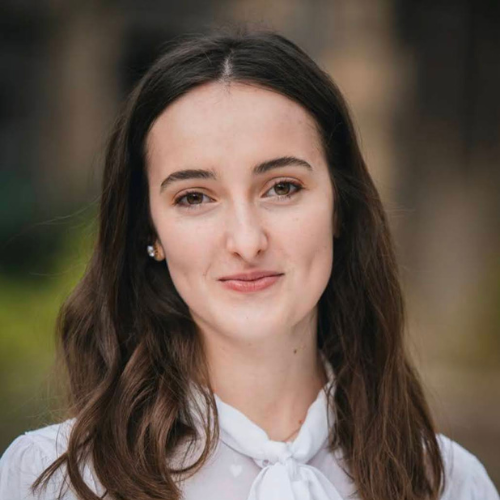
Silvia Gallagher
CHARM European Universities Research Fellow at Trinity College, the University of Dublin
Dr Silvia Gallagher is a CHARM European Universities Research Fellow at Trinity College, the University of Dublin. Her research interests lie in higher education innovation, focusing on teaching and learning design, education for sustainability, online learning, microcredentials, and inter-institutional collaborations. She is particularly interested in transdisciplinary research and innovation, challenge based learning, and qualitative research methods. She currently teaches on the Transdisciplinary Research Methods module, is a mentor and a member of the Programmatic Assessment Committee for the CHARM-EU Masters in Global Challenges for Sustainability.
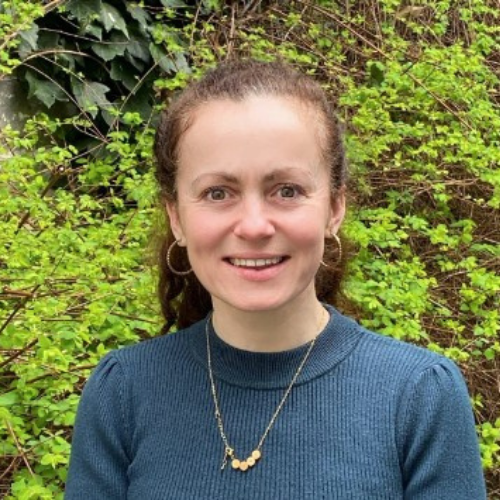
Szilvia Szöllősi
Head of the Rector’s Cabinet University Strategy Office @ Eötvös Loránd University (ELTE)
Proactive, solution oriented management professional with 13+ years of experience in international project coordination and project management, working towards an ever higher level of synergy between science and society.
As Head of the RC USO at ELTE supervised by the Vice-Rector of General Affairs, Szilvia is involved in institution-wide strategy making as well as coordination and implementation of development projects related to all aspects of sustainability, innovation, emerging technologies and third mission; also, she is responsible for the coordination of ELTE’s participation in various Hungarian and international, multisectoral, multidisciplinary project in cooperation with extra-academia stakeholders.
Actively involved in CHARM-EU since 2021, mainly focusing on external stakeholder engagement, research & innovation strategy and internal dissemination.
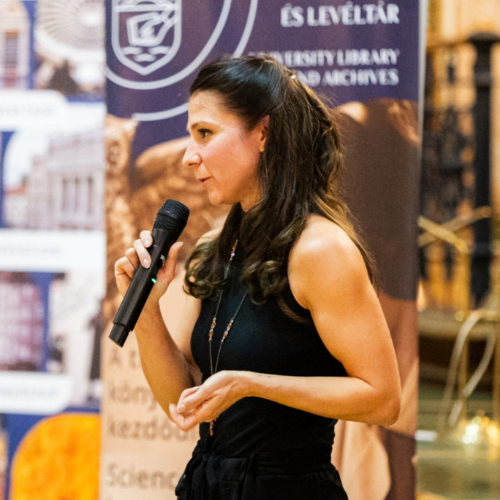
Zuhal Okan
Senior Lecturer at ELT Department, Faculty of Education at Çukurova University
Zuhal Okan holds a PhD degree from the University of Kent at Canterbury, the UK. She currently works at ELT Department, Faculty of Education, at Çukurova University as senior lecturer. She teaches courses such as Drama in ELT, Psycholinguistics, Sociolinguistics, Teacher Education and Critical Discourse Analysis at both undergraduate and postgraduate levels. Her research interests include discourse analysis, educational technology and teacher education. More recently though her focus is on the relationship between language and social justice or more precisely about relationships between the way the language is used and the challenge of providing equal opportunities in the society regardless of one’s gender, ethnic identity, wealth, educational background, or other identifiers.
She is also the project coordinator of the EUPeace University Alliance at Çukurova University.

practical information
We are honoured that you accepted our invitation to attend and contribute to the 2024 CHARM-EU Annual Conference. In this document, we provide you with the essential practical information to ensure a joyful conference experience.
You can also download our practical information pack in a PDF document here.
Event information and venues
Date: 5 November 2024, 8:30 – 20:30
Main venue (A): Eötvös Loránd University (ELTE), H-1053 Budapest, Egyetem tér 1-3. Aula Magna (how to arrive: https://maps.app.goo.gl/ArmsBK1UNUL1prU99)
Some of the workshops and the evening sessions will be organised at a different venue. Organizing team members will assist you during the short walk to the workshop venues.
Venue B (workshops 1 & 3): ELTE Faculty of Humanities, H-1088 Budapest, Múzeum krt. 4/F. (how to arrive: https://maps.app.goo.gl/QymFK6EpWbAR7RC77. See campus map here.)
Venue C (workshop 5): ELTE University Library and Archives, H-1053 Budapest, Ferenciek tere 6. (how to arrive: https://maps.app.goo.gl/TGNpas7VxVYK1k637)
Venue D (evening sessions): ELTE Faculty of Humanities, H-1088 Budapest, Múzeum krt. 4/G. “Gólyavár” (how to arrive: https://maps.app.goo.gl/jGLsriyfVKMMYL7d9. See campus map here.)
Download our interactive map with all the venues here.
Format: On-site with plenary sessions live streamed on the CHARM-EU YouTube Channel. The workshops and evening sessions are designed as presential sessions.
Speech-to-Text Reporters provide real-time captioning. Their expertise is essential to cater to the greatest level of attendees’ access and participation needs. Inclusion by design means designing the environment from the beginning to the greatest extent of users. This is a preventive approach (rather than fixing the environment retrospectively) along with the hybrid feature, in line with core CHARM-EU values.
Agenda
8:30 – 9:00: Registration (Venue A)
9:00 – 9:30: Welcome addresses (Venue A)
9:30 – 10:00: Keynote speech (Venue A)
10:15 – 11:30: Intercultural awareness in European Universities Alliances – Panel session (Venue A)
11:30 – 13:00: Group photo and Lunch Break (Venue A)
13:00 – 13:30: Opening of the CHARM-EU Cultural Festival (Venue A)
13:30 – 14:45: Global South Perspectives in European Higher Education – Panel session (Venue A)
14:45 – 15:15: Coffee break and short walk to the different venues of the workshops
15:15 – 16:45: Workshop sessions (some of them at a different venue)
Session 1: Developing an intercultural positionality resource for Challenge Based Learning (Venue B, Room 25, Building F)
Session 2: Exchange students’ interculturality experiences (Venue A, Faculty Meeting Room (groundfloor), main building)
Session 3: Culture(s) and Story Circles (Venue B, Room 101, Building F)
Session 4: Interactive debate on the AI era challenges of multilingualism in Europe (Venue A, Ceremonial Hall, main building)
Session 5: Cross-institutional and intercultural collaboration: A look into the European University Alliances’ joint virtual offices and interconnected support structures (Venue C, ELTE University Library and Archives)
16:45 – 18:00: Break
18:00 – 19:00: Poster session on intercultural best practices (Venue D)
19:00 – 19:15: Closing speech (Venue D)
19:15 – 20:30: Evening programme (Venue D)
Travel to Budapest
Budapest is rich in natural beauty and pearls of architecture and it is also a UNESCO cultural heritage site. Located in the centre of Europe, it is easily reachable from any European country.
Budapest Ferenc Liszt International Airport serves flights to all major European destinations and Budapest, due to its central location, can also be easily reached by train, bus or car. For more information please visit:
Budapest Ferenc Liszt International Airport
Important: From July to 31 December 2024, Hungary is holding the rotating presidency of the Council of the EU. During this period, an increased number of delegations will be visiting the country, primarily via Ferenc Liszt International Airport. A number of high-level meetings will take place between the 4th and 8th of November (you can find the official calendar of meetings here). Please consider that travel between the airport and city center might take more time than usual.
How to get to the city centre from the airport?
Important: From July to 31 December 2024, Hungary is holding the rotating presidency of the Council of the EU. During this period, an increased number of delegations will be visiting the country, primarily via Ferenc Liszt International Airport. A number of high-level meetings will take place between the 4th and 8th of November (you can find the official calendar of meetings here). Please consider that travel between the airport and city center might take more time than usual.
BKK airport shuttle bus
Airport shuttle bus 100E is in operation between Liszt Ferenc International Airport and Deák Ferenc tér, one of Budapest’s major transport hubs, running via Kálvin tér. This bus operates seven days a week (every 6-15 minutes during the day, 30-40 minutes during the night).
The 100E shuttle bus provides a convenient, cost-effective and fast connection between the airport and the city centre. The service is only available with an airport shuttle bus single ticket, which costs 2200 HUF. Please note that other tickets or passes are not valid for this service.
More details about the 100E airport shuttle bus:
https://bkk.hu/en/travel-information/airport-express
Public transport from the airport to the city centre
Bus line 200E operates 24 hours a day according to the usual schedule (every 10-12 minutes during the day, 30-60 minutes during the night) between the airport and Kőbánya-Kispest.
Passengers require a valid ticket or pass (please note that the Airport Shuttle Bus Single Ticket is not accepted on bus line 200E). You can use a single ticket (450 HUF), a travel card (e.g. 90-minutes ticket for 750 HUF) or a pass (e.g.15-days pass) for this service. Ticket types and prices can be found here: https://bkk.hu/en/tickets-and-passes/prices/
When the bus 200E arrives from the airport to Kőbánya-Kispest, which is the other end of the bus line, you should change to metro M3 or Blue Line. Follow the signs from the bus stop to the metro station (it is the terminus so you cannot miss the right direction). Please make sure you take one of the blue or white metro carriages and not a railway train (as the railway station is next to the metro station) to go to the city centre (Kálvin tér or Deák Ferenc tér).
Please note that if you used a single ticket in bus 200E, you need another ticket for using the metro.
Airport Shuttle
The official airport shuttle for Budapest Airport is miniBUD, which transports passengers in mini or ordinary buses/coaches. The service can be ordered on the spot or in advance for a certain time and date. Drivers speak foreign languages and are absolutely familiar with the traffic in Budapest, the shortest and fastest routes, so it is an ideal solution for passengers to reach their destination easily, fast and safely.
A one-way transfer to the city centre costs appr. 26 EUR (10000 HUF), a return ticket costs appr. 47 EUR (18000 HUF) per person. The service is cheaper for more than one travellers. More information about miniBUD and booking options: https://www.minibud.hu
Taxi
Főtaxi is the taxi company that can operate taxi service at the airport. Reservations can be made in person at the Főtaxi booths located at the exits of Terminals 2A and 2B. At the taxi ranks in front of the stands, taxis are continuously waiting for passengers. (Please be careful and always choose a taxi that belongs to a specific taxi company.)
A ride to the city centre should typically cost around 10800 HUF (28 EUR), depending on traffic conditions.
More information about the taxi service at the airport: https://www.bud.hu/en/passengers/transport/airport_transfer_and_other_services/taxi
Public transport in Budapest
You can find travel and ticket information, timetables and a trip planner on the website of BKK (Budapesti Közlekedési Központ), which operates the public transport system in Budapest: https://bkk.hu/en/
Tickets can only be purchased for Forint (HUF). A single ticket (valid for one ride) costs 450 HUF. More information about the ticket types and prices can be found here: https://bkk.hu/en/tickets-and-passes/prices/
You can also download the BKK application to your mobile phone, called BudapestGo. With the help of the app, you can buy your BKK mobile tickets: https://bkk.hu/en/tickets-and-passes/budapestgo/
Google Maps is also a reliable option for planning your journey.
You can find more details about travel options, daytime and night transport in Budapest here:
Hotel options
If you are a visitor at ELTE, we recommend you the following hotels close to our campuses in the downtown of Budapest. For further information, please contact the hotels directly.
- IBIS Budapest Centrum Hotel*** (Ráday Street)
- Mercure Budapest Korona Hotel**** (Kálvin Square)
- Hotel Erzsébet City Center*** (Károlyi Mihály Street)
- Hotel Astoria**** (Kossuth Lajos Street)
Useful information
Local time zone
Hungary is in the Central European Time (CET) zone, UTC+1.
Currency
The Hungarian currency is Forint (HUF/Ft).
Although there are some stores that accept Euro, as well, the exchange rates at these places often do not follow the most up-to-date bank rates, and it is not in favour of the customers. Thus, we advise you to change money at home, at the airport or at the train station.
You can also use your credit cards in almost each stores, restaurants and hotels.
Tap water
The tap water is potable in Hungary.
Electricity in Hungary
Electricity in Hungary is the European standard: 220-240 V. If you are coming from a country with a different standard for electricity, you may need an adapter or a voltage converter to use your electronic devices.
Electrical sockets (outlets) in Hungary are one of the two European standard electrical socket types: The “Type C” Europlug and the “Type E” and “Type F” Schuko. If your appliance’s plug does not match the shape of these sockets, you will need a travel plug adapter in order to plug in.
No smoking indoor
Smoking is strictly prohibited in restaurants, bars, clubs, at bus stops and in 50 m area of public institutions.
In case of emergency
Pharmacies are usually open until 8 p.m., but some are open around the clock where pharmacists work on night duty. Please note, that if you go to a pharmacy in the evening or during the night, you have to go to a special window and sometimes ring a bell, too.
A 24-hour pharmacy in the city centre: Teréz Patika (1067 Budapest, Teréz körút 41.)
Emergency numbers
- Ambulance: 104
- Police: 107
- Fire department: 105
- Central ER number: 112
Contact information
In case of any questions, queries, or emergencies, please, contact Maria Szulovszky, CHARM-EU Communications Officer at ELTE, maria.szulovszky@rk.elte.hu.
If you need an attendance certificate, please contact blanca.burillo@ub.edu.
On behalf of the community of CHARM-EU we wish you a fruitful conference!
Call for posters
The poster session will be a space where members of European University Alliances, university staff, students and external stakeholders can exchange ideas and discuss practical cases.
- When? 5 November 2024 from 18:00 to 19:00
- Where? ELTE Faculty of Humanities, H-1088 Budapest, Múzeum krt. 4/G. “Gólyavár” (how to arrive: https://maps.app.goo.gl/jGLsriyfVKMMYL7d9)
Posters should reflect intercultural experiences and best practices of intercultural learning where participants will be able to examine the overarching issue of culture with its interpretations and role in deepening transnational and inter-institutional collaboration within and beyond Alliances.
The call is open to European Universities Alliances and other institutions working on the topic, who would like to share their intercultural educational and research activities.
Send us your proposal and join us at the CHARM-EU Annual Conference 2024!
Open call for posters
If you are interested in presenting a poster at the CHARM-EU Annual Conference 2024 “European Universities and Intercultural Learning”, please send us an abstract reflecting the case study. The abstract should be between 300 to 500 words and should include the following information:
- Description of the intercultural activity
- Description of the outcomes
- If you have any support material, please share it with us (website, videos, infographics, articles, etc.).
Format of the poster: A2 vertical
The deadline for this open call is Friday 4th October 2024. The selection of the posters will be communicated by Tuesday 8th October.
Please send your proposal for the poster session to blanca.burillo@ub.edu
Posters
Have a look at the posters presented on the Poster Session:
- Book of your life
- Beyond Borders and Realities – a Holistic Approach to Hybrid TEFL Seminars
- Transforming into a pan-European course
- Scientifics Hubs and transculturality
- Intercultural Competences and Learning of University International
- Winter School
- Intercultural Collaboration in Hybrid Learning Spaces
- Navigating global challenges locally a transcultural experience in education
- Multiculturalism & Interculturality Literature Children
- Enhancing Student Soft Skills and Cultural Awareness Through Student Hackathons
- Aspects of multiculturalism in mentoring
- The Trinity-Inclusive Curriculum Project
- Interculturality on a Daily Basis
- Beyond differences To an enriched perspective
